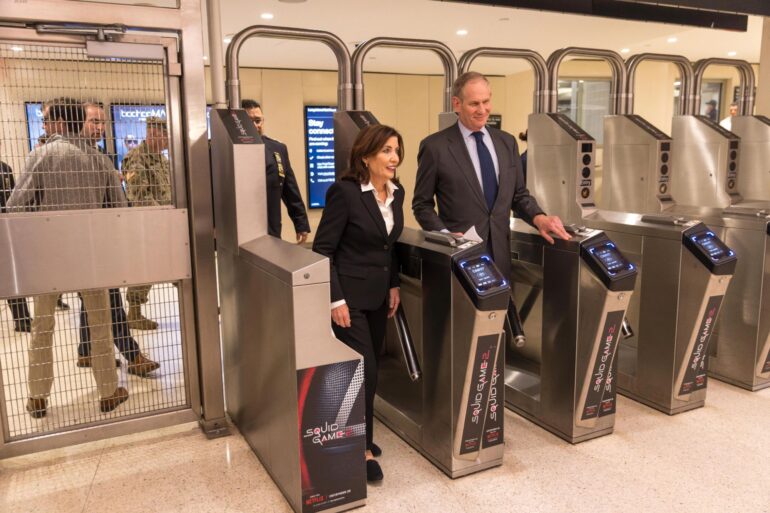🔴 Website 👉 https://u-s-news.com/
Telegram 👉 https://t.me/usnewscom_channel
When it comes to cash, the MTA can never get enough.
On Wednesday, the agency OK’d a plan to hit riders with a nearly 4% fare hike next year, to an even $3 a ride.
And then to hit them again, just two years later.
That would be on top of the $9 toll it’s charging motorists, starting Jan. 5, to drive into Midtown Manhattan. That, too, is slated to shoot up, to $12 then $15 in coming years.
Meanwhile, the plan also calls for an outlay of $1.27 billion (yes, with a “b”) for 435 new subway cars.
Sure, those cars are an upgrade from today’s fleet. But given the agency’s pleas for cash, is now the time for such a purchase?
Besides, that price per car ($2.92 million) is nearly double what Chicago Transit paid ($1.58 million) for 400 subway cars it recently bought.
And while those Windy City cars might be smaller, the New York delta fits with a pattern.
Who can forget The New York Times’ report some years back of MTA capital-project costs per mile of track running seven times the average elsewhere in the world?
(In the East Side Access project, no one could say what 200 workers were supposed to be doing, even though they earned about $1,000 a day each.)
No wonder the agency faces repeated cash shortfalls: A “crisis” back in 2009 triggered a new payroll tax on businesses in the metropolitan area, producing billions.
Regular fare hikes added more.
Then COVID severely depressed ridership and wiped out much fare revenue, sparking more red ink — so the feds kicked in billions, holding the MTA harmless.
Similarly, New York’s disastrous criminal-justice reforms that spiked crime and failure to get the mentally ill off the streets and subways also have scared away riders — and fare revenue.
Farebeating, which mostly hasn’t been prosecuted since the de Blasio days, further compounds the losses.
Yet the answer isn’t to slap motorists with new tolls and riders with fare hikes; it’s to fix the broken criminal-justice and mental-health systems.
And to negotiate more pro-rider contracts with workers’ unions.
And to clamp down further on waste.
MTA boss Janno Lieber has made some progress containing costs.
But no new major projects can be justified until the public is 100% assured the agency’s fiscal house is in order.
Only then will New Yorkers will OK hefty outlays for new subway cars — and maybe even the occasional fare hike to keep up with inflation.

